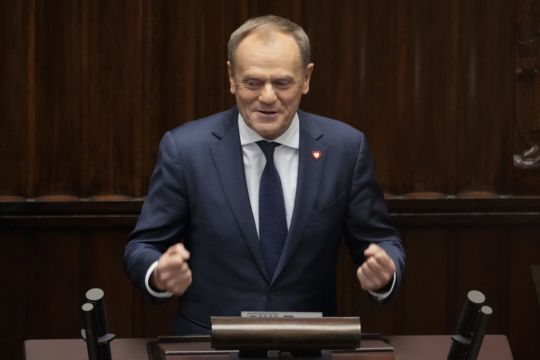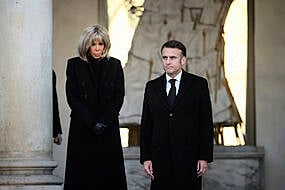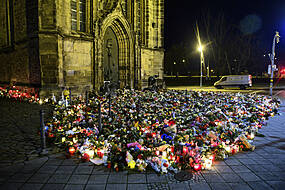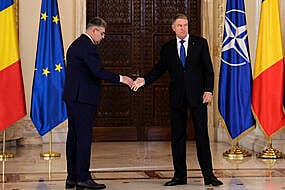Newly elected Polish Prime Minister Donald Tusk has said his government will mobilise to keep the world committed to helping Ukraine and pledged that Warsaw would be a stable ally of NATO and a leader in Europe.
In his inaugural speech to parliament, Mr Tusk also called on Poland’s fractious political class to unite, saying it cannot afford divisions while Russia is waging a war of aggression across the border, a conflict many fear could spread if Moscow prevails.
“Poland’s task, the new government’s task, but also the task of all of us, is to loudly and firmly demand the full determination from the entire Western community to help Ukraine in this war.
“I will do this from day one,” Mr Tusk said in a session attended by Ukraine’s ambassador and former Polish presidents, including the anti-communist freedom fighter Lech Walesa.
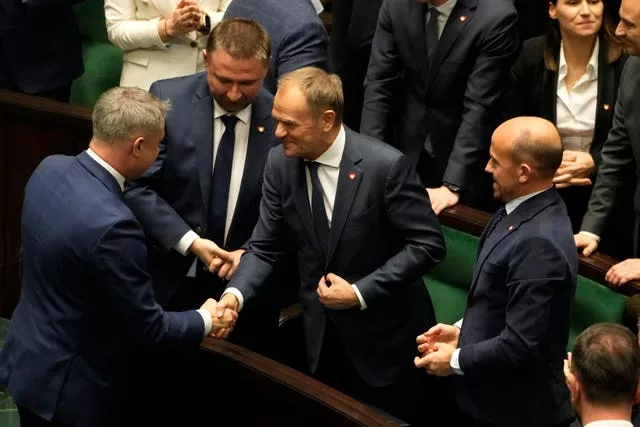
Tusk’s government later Tuesday won a vote of confidence in parliament 248-201, but the vote was delayed when a far-right pro-Russia lawmaker, Grzegorz Braun, grabbed a fire extinguisher and put out candles on a menorah during a Hanukkah celebration. Mr Tusk and others denounced the incident as a disgrace.
He said it hurts him to hear Ukrainian President Volodymyr Zelensky have to keep trying to persuade world leaders of the need to continue supporting Kyiv’s struggle against Russian aggression.
Mr Tusk said it will be a priority for his coalition government to persuade leaders that they need to continue to help Ukraine defend itself, and that is also in the interests of the free world.
“There is no alternative to this way of thinking. I can no longer listen to some European politicians from other Western countries who say something about being tired of the situation in Ukraine. They are tired. They say it to President Zelensky’s face that they no longer have the strength, that they are exhausted,” Mr Tusk said.

Mr Tusk was making his policy speech in parliament on Tuesday, a day after politicians chose him as the new prime minister.
The centrist leader, who was previously prime minister from 2007-2014, returns as the head of a broad alliance that spans the ideological spectrum from left-wing via his own Civic Platform party to more conservative parties.
He faces many challenges, from restoring democratic standards in his own country, working for the release of European Union funding frozen due to democratic backsliding by his predecessors, and facing the implications of a war across Poland’s eastern border in Ukraine.
One of his easier challenges will be restoring ties with the EU, which were badly strained during the past eight years of rule by a national conservative government.
Mr Tusk, who served as European Council president from 2014-2019 and has strong connections in Brussels, is expected to improve Warsaw’s standing in the bloc’s capital.
His ascension to power came nearly two months after an election which was won by a coalition of parties that ran on separate tickets, but promised to work together under Mr Tusk’s leadership to restore democratic standards and improve ties with allies.
